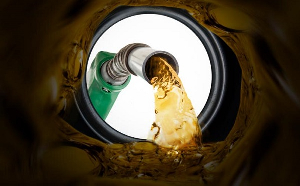Accra, Sept. 23, GNA - A Consultant on the Universal Salt Iodisation (USI) programme on Wednesday called for high level political commitment to ensure that Ghana achieved the 90 per cent target of household consumption of iodated salt by 2011.
Mr. Jakob Mikkelsen, World Food Programme (WFP) and Micronutrient Initiative Programme Consultant, said: "there is the need to create a one-stop shop for USI in Ghana. This should be in the form of a government commission or a strengthened Presidential Special Initiative (PSI) on Salt, reporting to the President's Office or the National Development Planning Commission."
He made the call at the opening of a two-day workshop to disseminate findings on the supply chain of potassium iodate, monitoring and enforcement of USI regulations in Accra. The workshop organised by WFP brought together stakeholders from the health sector, PSI, Food and Drugs Board, Customs, Excise and Preventive Service (CEPS), to deliberate on how to improve the supply of potassium iodate, the chemical used to iodise salt and push the USI agenda forward.
Although, a law is in place banning the production, human and animal consumption of non-iodised salt in the country, Ghana, a major salt exporting country in the sub-region, has had challenges ensuring that there is a general use of iodised salt.
A recent survey in 2006, showed a national average USI compliance of 32.4 per cent. The use of non-iodised salt promotes Iodine Deficiency Disorders (IDD), with its attendant risks of still births in pregnancy, goitre, miscarriage and mental retardation among other conditions. Mr. Mikkelsen, who touched on some key findings in the potassium iodate supply chain, said the supply of the substance should be decentralised because it would not augur well for the USI agenda, if salt producers had to travel to the Food Research Institute in Accra to obtain the chemical to iodise salt.
He said although there was tax exemption for the importation of potassium iodate, bureaucracy in accessing the facility was frustrating importers.
Mr. John Tehinse, another Consultant on the USI, who spoke on monitoring and enforcement, said: "whether or not the USI will achieve its stated objectives depends on the performance of its monitoring and enforcement component."
He called for the enhancement of the regulatory agencies to help in effective monitoring and enforcement for the use of iodised salt. Mr. Tehinse said: "the core objective of the national USI programme is to provide dietary iodine to the target population at the households in adequate amounts in order to eliminate the incidence of IDD in the population."
Madam Sibi Lawson-Marriott, a WFP representative said IDD was one of the leading causes of mental disorders and although the global goal was to achieve USI by 2005, this had not happened in Ghana. She identified the supply of potassium iodate, weaknesses in monitoring and enforcement as some areas that needed to be tackled. 23 Sept. 09
General News of Wednesday, 23 September 2009
Source: GNA












